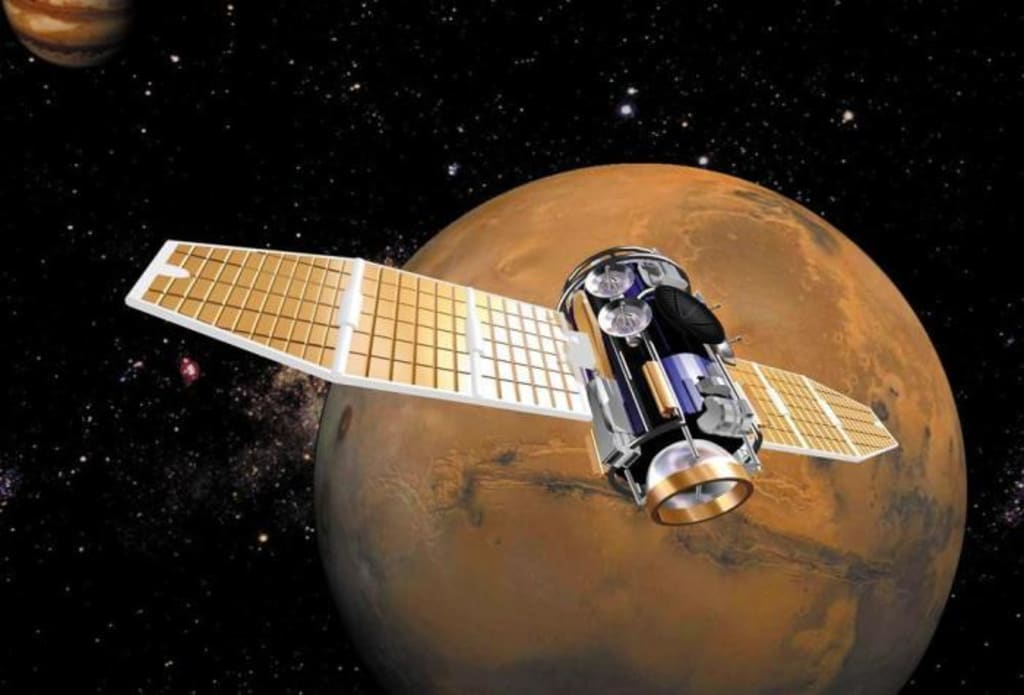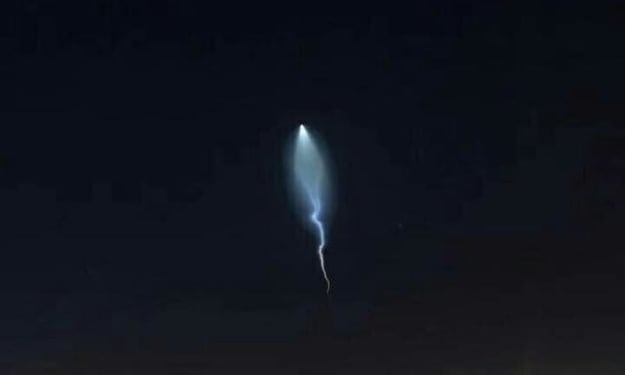A satellite that has been lost for more than 40 years signals again, but scientists are in deep thought
After the satellite launch

Nowadays, human space technology is more and more developed, not only can we go to the moon and explore the moon, but also can launch more and more artificial satellites into the earth's orbit.
The emergence of artificial satellites also provides the basis and guarantee for the development of communication, meteorology, navigation, military, and other fields, with the continuous development of intelligent technology, human reliance on satellites is becoming stronger and stronger.
Although human science and technology are now more and more developed, the launch of artificial satellites into space, is not always successful, some artificial satellites in the launch process may be damaged, have orbital deviation, and other problems.
For those who deviate from the orbit of the satellite, it will run directly into outer space.
Some time ago there was such a satellite, which is a satellite off orbit lost for more than 40 years, but a few years ago, scientists received a signal from this lost satellite again.
Many people may say that this is a great thing, that this artificial satellite is back, but scientists do not think so, think that this matter is certainly not simple, so scientists are also into contemplation, and has been studying this loss for many years artificial satellite.
This lost satellite is the first U.S. launched in 1965 near-Earth orbit satellite - LES-1 satellite
It was the height of the Soviet-American rivalry, and the Americans hastily launched this satellite without proper preparation to catch up with the then former Soviet Union.
After the satellite was launched, there was a fatal problem with one of the wiring of the satellite circuit board because of the lack of precise testing, and after the successful launch, it did not enter the intended orbit because of this small mistake
At that time, NASA also through a variety of remedial measures to save the satellite, but until 2013 the satellite has been in a state of disconnection and stopped functioning, like other junk in space, orbiting the Earth.
Later, with the booming of human spaceflight, more and more satellites were sent into space, and people gradually forgot about these satellites.
And unexpectedly in 2013, amateur astronomers listened to the radio, by chance in a specific channel to capture a, very subtle but not very clear signal.
By comparing it with other signals in the channel, he found that this signal with an unusual rhythm, and also sent this signal to the circle of astronomy enthusiasts, the results of people attracted a lot of people to discuss.
After a unanimous discussion, the conclusion was that this signal originated from LES-1, which had been lost for more than 40 years.
To verify this conclusion, a large group of astronomy enthusiasts spent more than three years of comparative experiments, the results show that LES-1 is indeed in a more regular state, to the Earth to launch the signal
After hearing this news, scientists did not feel excited but felt that there must be something fishy about the matter.
Under normal circumstances, when an artificial satellite has an accident and lost contact with the ground, the outcome is most likely to be the satellite's power supply energy exhausted after being reduced to space junk, and then falling into the Earth's atmosphere, or colliding with other space junk split.
For the satellite lost and resurrected example is relatively rare, scientists say that in extreme cases may be part of the satellite's program was activated.
For example, this lost satellite sent each time the signal strength changes very large, there is no regular system, so scientists decided that it is likely that the satellite's solar panels received the sun's radiation
Although after more than 40 years of space travel, but still plays a role, solar panels by the sun after direct sunlight instantly filled with energy, and this process also activated its signal transmitter, so it issued a subtle signal.
Since scientists have explained the cause of this problem, why are still worried about it?
Scientists are not worried about this lost satellite, but due to this lost satellite is associated with the current space.
There are now a large number of artificial satellites in space, and there are many of them outside the launch room that are still orbiting the Earth, and these artificial satellites are also considered space junk.
Up to now, mankind has launched nearly 8000 artificial satellites over the Earth, of course certainly not all of them are working some satellites are no longer useful, and are reduced to space junk, but mankind has no recycling ability for these space junk.
In the future, humans will certainly launch more and more artificial satellites into space, so the density of space junk over the Earth will only increase.
If more and more artificial satellites are in space, then the space junk above is bound to be more and more, these space junk floating in space without purpose, will certainly bring threats to other operating satellites.
If this space junk is not decomposed in space but fell into the ground, once they crash into the densely populated areas, the consequences are also very worrying.
Perhaps this is the point that scientists are worried about because until now many countries are still launching artificial satellites into the sky, but no country recycles this space junk, mainly because the current space junk recycling technology is not mature, and the cost of recycling is particularly large, no one wants to clean up the junk in space.






Comments
There are no comments for this story
Be the first to respond and start the conversation.